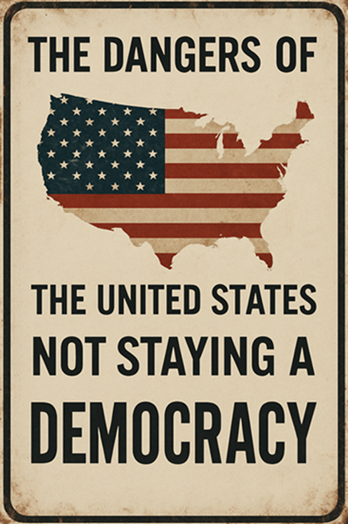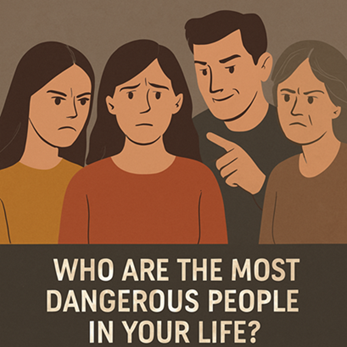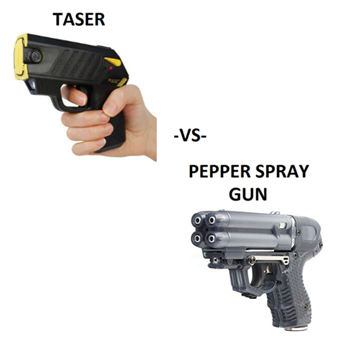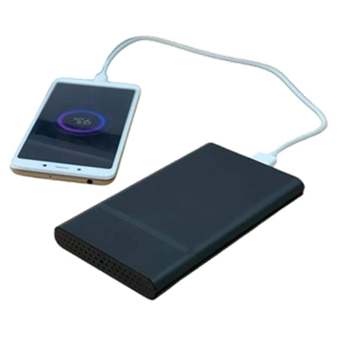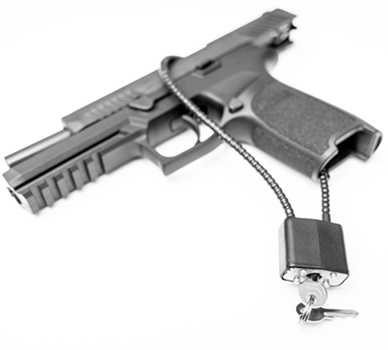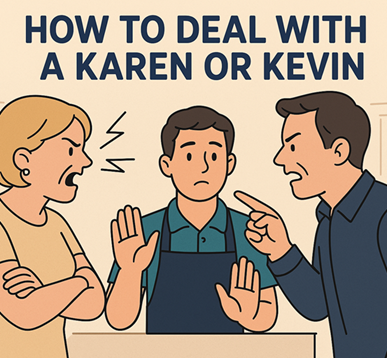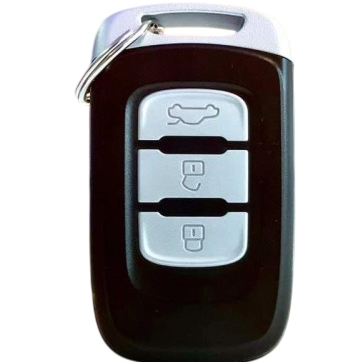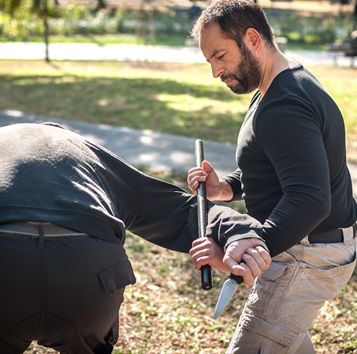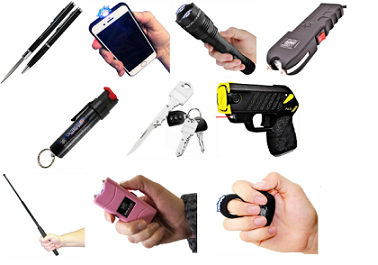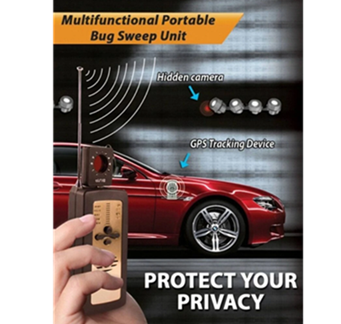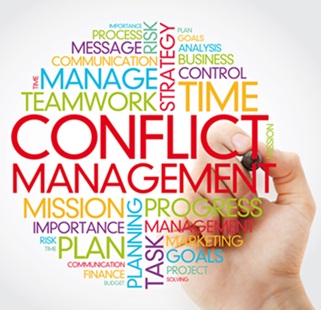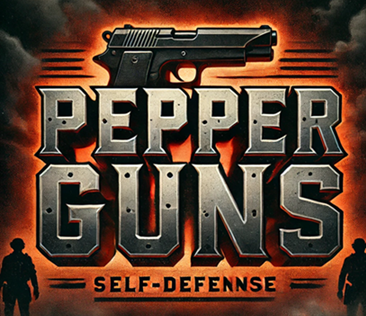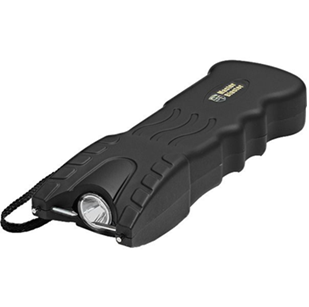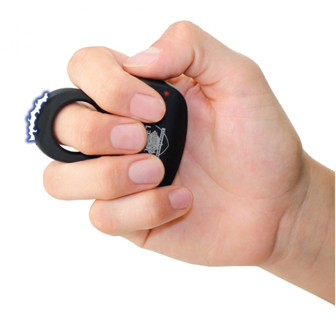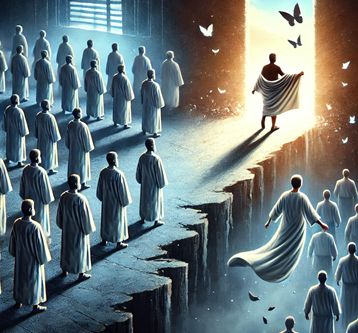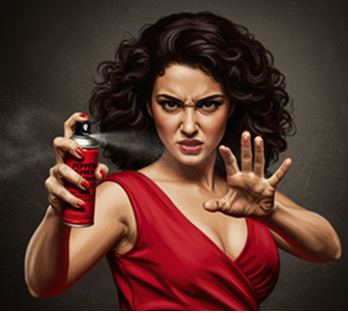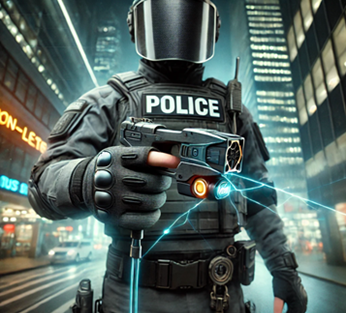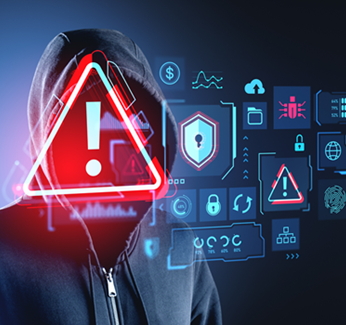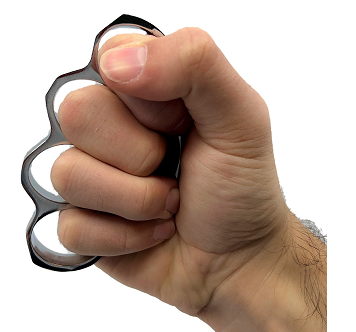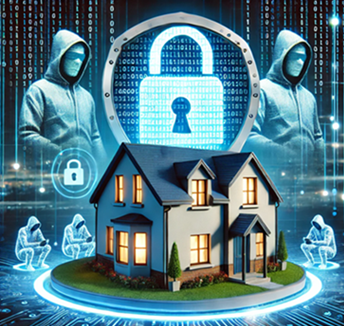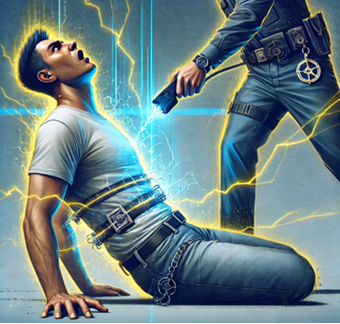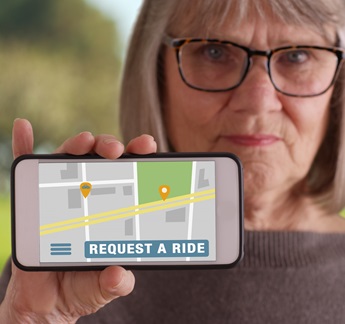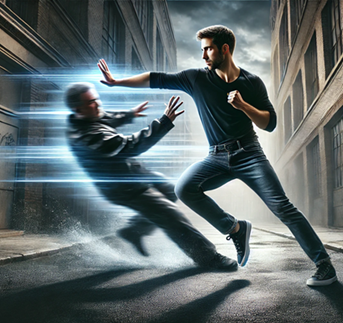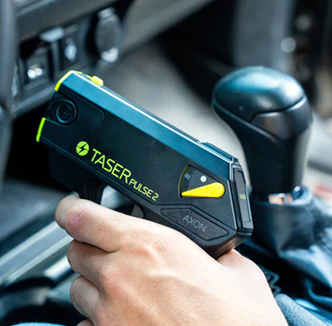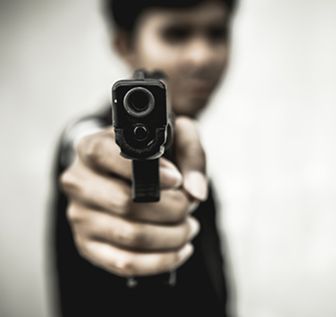Who Are the Most Dangerous People in Your Life?

When people think of danger, they often imagine criminals, strangers lurking in shadows, or dramatic scenes from crime thrillers. But in real life, danger often wears a familiar face. The most dangerous people in your life are rarely the ones you’d expect. They don’t always carry weapons or raise their voices. In fact, they may smile warmly, share meals with you, or even sleep beside you at night. They might be in your circle of friends, family, work—and sometimes, tragically, your romantic relationship.
Let’s take a deeper look at who these people might be, how they operate, and how to protect yourself—not necessarily through confrontation, but by developing awareness, setting boundaries, and knowing when to walk away.
1. The Manipulator
Danger Level: High
Why They're Dangerous: They reshape reality to suit their narrative.
The manipulator is often subtle, clever, and persuasive. They know how to twist words, guilt-trip you, or use your emotions against you. You might not even realize it until months or years down the road. They are dangerous because they wear a mask of care or charm while feeding off your trust and bending your decisions to their benefit.
You’ll often hear phrases like:
-
“If you really cared about me, you’d do this.”
-
“I never said that—you must be remembering it wrong.”
-
“Everyone else agrees with me, you’re just too sensitive.”
How to Protect Yourself: Trust your gut when something feels off. Keep track of your conversations. Set firm emotional boundaries and don’t be afraid to walk away when manipulation becomes a pattern.
2. The Chronic Victim
Danger Level: Medium to High
Why They're Dangerous: They drain your energy and twist accountability.
The chronic victim always has a sob story, and while it’s important to be empathetic, their pattern lies in using hardship to avoid responsibility. They expect your time, money, energy, and patience endlessly. Over time, they create a co-dependent dynamic where you feel responsible for fixing their life.
What starts as compassion turns into emotional slavery. They are dangerous because they hold you hostage with their pain.
Signs to Watch For:
-
Constant crises that always require your help
-
Refusal to take accountability for their mistakes
-
They turn against you when you stop enabling them
How to Protect Yourself: Offer support, but make it conditional on their effort. Encourage self-sufficiency. If they reject growth or accountability, know it’s okay to step back.
3. The Jealous Friend
Danger Level: High
Why They're Dangerous: They root for your failure in silence.
Jealousy is a silent killer of relationships. A jealous friend pretends to support you, but underneath, they want what you have. They might downplay your successes, criticize your choices, or plant seeds of doubt. They may try to sabotage your progress subtly by giving bad advice or turning others against you.
Clues:
-
Backhanded compliments: “You’re lucky things just fall into your lap.”
-
They’re absent when things go well but present when you’re struggling
-
They mock or diminish your ambitions
How to Protect Yourself: Surround yourself with people who genuinely celebrate your wins. Distance yourself from those who make you feel guilty or small for growing.
4. The Passive-Aggressive Partner or Parent
Danger Level: Medium
Why They're Dangerous: Their words sound calm, but their behavior wounds.
This person doesn't yell or threaten. Instead, they punish with silence, sarcasm, and backhanded remarks. Passive aggression is tricky because it's often cloaked in “jokes” or “I’m fine” comments. But over time, it leaves you second-guessing your worth and walking on eggshells.
Behaviors Include:
-
Giving the silent treatment
-
Making you feel guilty without saying it directly
-
Using sarcasm as a weapon
-
Withholding affection or communication
How to Protect Yourself: Call out passive-aggressive behavior with clarity. Ask direct questions and avoid playing mind games. Seek therapy if it’s a long-term dynamic with a family member or spouse. If they refuse to change, it may be necessary to create emotional distance.
5. The Control Freak
Danger Level: High
Why They're Dangerous: They rob you of autonomy.
Whether it’s a partner who monitors your every move or a boss who micromanages your existence, the control freak operates from fear—but makes you pay the price. They don’t believe in collaboration or independence. Instead, they need to dominate decisions, relationships, and even emotions.
Control Shows Up As:
-
Dictating who you can see, what you can wear, or where you can go
-
Insisting on making all decisions “for your own good”
-
Becoming upset when you assert independence
How to Protect Yourself: Reclaim your autonomy one step at a time. Set small boundaries and stick to them. Build support outside of the controlling person’s sphere. If control escalates to abuse, seek professional help or make an exit plan.
6. The Narcissist
Danger Level: Very High
Why They're Dangerous: They see people as tools for their own needs.
Narcissists often enter your life with charm, charisma, and confidence. They can be leaders, lovers, or family members. But beneath the surface is a person who lacks empathy and needs constant validation. They will idealize you, then devalue you. They don’t form relationships—they form transactions.
Typical Narcissistic Behavior:
-
Love-bombing followed by emotional withdrawal
-
Gaslighting and rewriting history
-
Making everything about them—even your pain
How to Protect Yourself: Don’t feed their need for validation. Limit your exposure to them. Set boundaries, and don’t fall for their love-bombing cycle again. In serious cases, going no-contact may be the only healthy option.
7. The Addict Who Refuses Help
Danger Level: High
Why They're Dangerous: They bring chaos, lies, and potential harm.
Not all addicts are dangerous. Many are self-aware, seeking help, and taking responsibility. But the addict who refuses treatment and accountability often brings destruction to those around them. They lie, steal, manipulate, and create emotional instability. They might drive drunk, neglect children, or expose loved ones to violence.
Signs of Danger:
-
Frequent dishonesty or denial
-
Financial recklessness
-
Inability to hold down a job or relationship
-
Explosive behavior when confronted
How to Protect Yourself: Love them from a safe distance. Offer resources, but don’t enable. Protect your physical and financial safety, especially if children are involved.
8. The Enabler
Danger Level: Medium
Why They're Dangerous: They keep you stuck where you are.
Enablers don’t seem dangerous. They may appear loving and supportive. But their version of love stunts your growth. Whether it’s a parent who shields you from consequences or a friend who encourages your worst habits, enablers keep you in cycles of self-destruction.
They don't challenge you—they comfort your dysfunction.
How They Show Up:
-
Making excuses for your poor behavior
-
Bailing you out without discussion
-
Downplaying the impact of your actions
How to Protect Yourself: Surround yourself with people who hold you accountable. Welcome uncomfortable truths. Thank those who challenge you with love, and slowly distance yourself from those who stunt your growth.
9. The Secret Hater
Danger Level: Medium to High
Why They're Dangerous: They mask their resentment with friendliness.
This person is hard to spot because they pretend to like you. They smile to your face and gossip behind your back. They listen not to support you—but to collect information they can use. They may be coworkers, distant relatives, or even people from your childhood.
Red Flags:
-
They never compliment you unless it’s sarcastic
-
They always seem to know your weaknesses
-
They subtly celebrate your failures
How to Protect Yourself: Don’t overshare with people who haven’t earned your trust. Observe consistency in their words and actions. When someone shows you who they are—believe them.
10. The One Who Disrespects Your Boundaries
Danger Level: High
Why They're Dangerous: They make you feel guilty for protecting yourself.
Healthy relationships are built on respect. But some people feel entitled to your time, body, energy, or attention—even after you say no. Whether it’s a pushy partner, a toxic parent, or a boundaryless friend, anyone who consistently disrespects your limits is not safe for your mental or emotional well-being.
How It Manifests:
-
Guilt-tripping when you say no
-
Ignoring your emotional or physical space
-
Making you feel “selfish” for having needs
How to Protect Yourself: Reaffirm your boundaries clearly and calmly. Don’t justify or over-explain. If someone refuses to respect your space, consider limiting or cutting contact.
11. The Spouse or Partner Who Undermines You
Danger Level: Extremely High
Why They're Dangerous: They erode your sense of self from the inside out.
This is one of the most emotionally complex and damaging types of danger because it comes from someone who shares your life, your bed, and your trust. A toxic partner may not leave bruises, but they leave invisible wounds—emotional manipulation, gaslighting, withholding affection, controlling finances, or isolating you from your support network. Because love and routine are involved, the signs can be easy to dismiss or excuse.
You May Notice:
-
You constantly question your worth or feel like you're never enough
-
They downplay your accomplishments or mock your goals
-
You’re afraid to bring up concerns because they’ll turn them against
-
You feel more alone in the relationship than when you’re actually alone
-
You’re being monitored, controlled, or made to feel guilty for having autonomy
Final Thoughts: Danger Isn’t Always Loud
Most of us associate danger with physical violence or extreme situations. But emotional danger is often more subtle—and longer-lasting. It drains your self-worth, clouds your judgment, and makes you doubt your reality. The most dangerous people in your life may never hit you, but they’ll make you feel invisible, disposable, or broken.
Recognizing dangerous people isn't about paranoia—it's about awareness. It’s about identifying unhealthy dynamics, protecting your energy, and giving yourself permission to choose peace over loyalty to pain.
Let go of the idea that you have to keep certain people in your life because of blood ties, shared history, or social obligation. You owe it to yourself to create a life that feels safe, empowered, and whole.
Remember:
-
Not all dangerous people are evil—but they are unhealthy for you.
-
Just because someone isn’t violent doesn’t mean they’re safe.
-
Healing sometimes means walking away—even from people you love.
-
You are not responsible for fixing others at the expense of your own peace.
Surround yourself with people who lift you, challenge you with love, and respect your growth. Life’s too short to be at war in your own home, your friendships, or your heart.
























